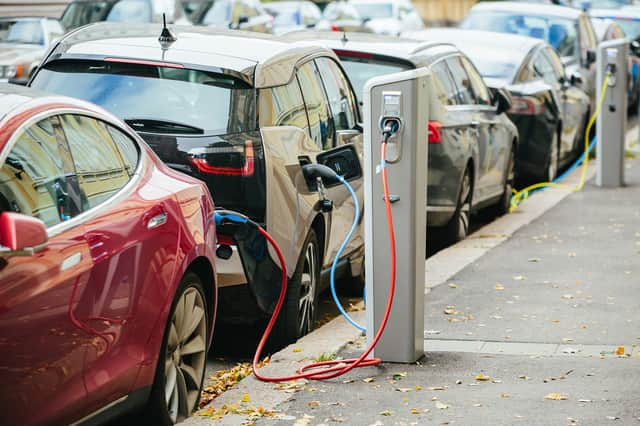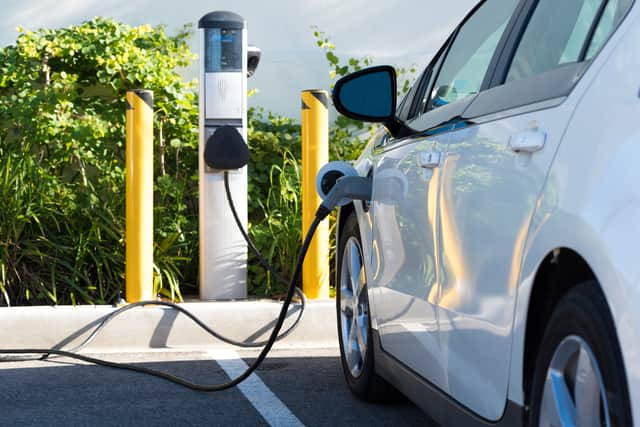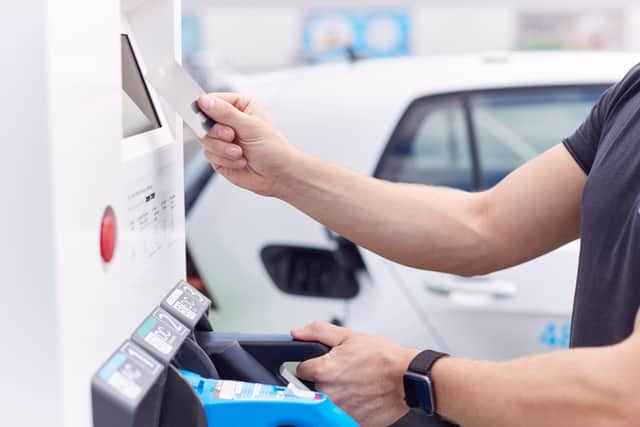Car industry calls for EV charging watchdog to ‘level up’ public network


The Government has been urged to set up an electric vehicle charging regulator to ensure the country’s public network is fit for purpose.
The body which represents the car industry in the UK says a charging watchdog is needed to ensure that infrastructure keeps up with demand and that drivers are treated equally and fairly around the country.
Advertisement
Advertisement
The Society of Motor Manufacturers and Traders (SMMT) has published a seven-point plan it says will ensure motorist around the country can benefit from an “affordable, available and accessible” public charging network.
This includes the creation of a new OfCharge charging watchdog, legal mandates for charge points in every part of the country and ring fencing funding to help local authorities install chargers.


The SMMT said this would “keep the consumer at the heart of infrastructure planning and rollout to ensure every region of the UK is in readiness for the end of sale of new petrol and diesel cars in 2030”.
The industry body says that demand for electric cars is currently outstripping provision of public charging and the failure of the network to keep pace is undermining efforts to persuade drivers to switch ahead of the 2030 ban.
Advertisement
Advertisement
EVs accounted for one in six new car registrations in 2021, and the number of EVs on the roads grew by 568% between 2019 and 2021 while the number of standard chargers rose by just 70% and rapid charges by 82% in the same period. However, EVs still only account for 1.3% of all cars on UK roads.
The SMMT also highlighted huge regional differences in provision, which it argues a regulator is needed to address.
According to its data, in 2021, the ratio of EVs to standard public chargers stood at 1:52 in the north of England, compared with 1:30 in the south, which was a larger gap than in the previous year.
Mike Hawes, SMMT chief executive, said that while the car industry was committed to a switch to EVs, support from elsewhere was also needed “especially the charging industry as surveys show that range anxiety has been replaced by charging anxiety”.
Advertisement
Advertisement
He added: “Our plan puts the consumer at the heart of this transition, assuring them of the best possible experience backed by an independent regulator. With clear, equivalent targets and support for operators and local authorities that match consumer needs, government can ensure the UK has a chargepoint network that makes electric mobility a reality for all.”
Access to charging remains a key concern for drivers, according to new research by consumer group Which?


It found that three of the five biggest concerns around EVs were linked to availability and cost of charging, despite most charging taking place at drivers’ homes.
The Which? report highlighted the huge regional differences in provision as well as the complex network of different providers, many of which require subscriptions or membership cards to access their chargers.
Advertisement
Advertisement
It also pointed out that those who relied on public chargers faced far higher costs to fuel their car. It is estimated that as many as eight million motorists are unable to charge an EV at their home.
Sue Davies, Which?’s head of consumer protection policy, said: “Our research shows that few electric vehicle owners currently rely on the public charging network, but this will have to change if millions of people are going to switch from petrol and diesel vehicles in the next decade.
“Improving the UK’s flawed charging infrastructure will support more motorists to make the switch to a zero-emission vehicle. The current confusing and complex system needs to be quickly overhauled if the network is going to be ready for the ban on new fossil fuel cars in 2030.
“Charging must be easy, accessible and affordable if people are going to make the move to an electric car.”
